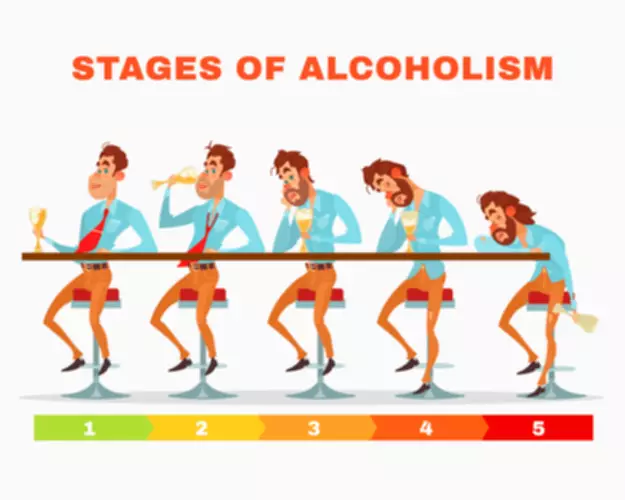What Are Some Examples of Powerlessness? STR Behavioral Health

One of the fundamental aspects of embracing powerlessness is surrendering control. In addiction, individuals often try to exert control over their substance use, believing they can manage or moderate it. However, this control becomes an illusion, leading to a cycle of destructive behaviors. In sobriety, recognizing the futility of control and surrendering to the fact that addiction cannot be controlled is a crucial step towards recovery. It involves letting go of the belief that one can control their substance use and instead accepting the need for a new way of living. The AA first step, admitting powerlessness and acknowledging the unmanageability your addiction brings, is a crucial leap toward lasting recovery.
- Ms. Honer, who has been in long-term recovery for over 40 years, has worked in the treatment field for over 33 years.
- We admitted we were powerless over our addiction – that our lives had become unmanageable.
Accepting Limitations and Vulnerability

The original version of the Twelve Steps and The Big Book makes numerous references to God, and this is largely because the steps were based on the six principles of The Oxford Group, a religious movement. The original references to God were quickly challenged in the early days of AA, and Bill W. Addressed those challenges by explaining that every member was welcome to interpret God to mean whatever higher power they chose to believe in while working the steps.

Support Our Mission
Whatever the reason, admitting powerlessness is to say that practicing self-control does not undo the effects of drugs or alcohol on the brain. Accepting this reality is what will equip you to seek treatment rather than deny that there is a problem in the first place. Understanding powerless, that I had no choice, changed my life. It wasn’t until I had a full understanding of this word that my spiritual journey really was able to begin. It also made me realize that I’m not a bad person or a weak person. I saw that I was worse than I knew, but understanding the problem helped me accept the solution.
How Do You Get to Step 1?

They may feel like they have little choice but to continue using drugs or alcohol because they lack alternatives. Before speaking, the participant is required to state his or her first name and say that he or she is an alcoholic. When you follow this format, you are participating in Step 1 and admitting to the group that you may be struggling with alcohol addiction. As a part of treatment at MARR, our clients complete a First Step Inventory, which includes examples of powerlessness and unmanageability from various areas of life.
- This is part of our ongoing commitment to ensure FHE Health is trusted as a leader in mental health and addiction care.
- Are you ready to achieve liberation and strength over your destructive drinking habits?
While admitting powerlessness over a substance may seem at odds with efforts to hold addicts responsible for their behaviors, the opposite is true. By accepting that you’re powerless over alcohol, drugs or addictive behavior, you’ve come to terms with your personal limitations. When you are 2 or 10 or 20 years sober, you are still going to be powerless over alcohol. Silver Pines and Steps to Recovery have provided addiction recovery programs in Pennsylvania for over a decade with detox, residential, outpatient, and sober living services.
Understanding the 12 Steps of Alcoholics Anonymous can be vital in helping you achieve or maintain recovery. A crucial part of completing AA Step one revolves around admitting powerlessness. Step 1 of AA requires a great deal of strength and courage as you accept that examples of powerlessness over alcohol alcohol has taken over your life. Humans naturally gather together, which is why group therapy remains a powerful therapeutic tool for alcohol addiction. Further, groups with trained leaders, such as AA sponsors, can positively promote substance abuse recovery.
Denial is a classic symptom of addiction, especially in the form of justification. In other words, “You’d drink too if you had my life” is a warning sign of powerlessness over addiction. So is, “How is taking a drink to calm down different from taking medication to calm down?” If you have to justify your use of the substance, you may have a problem. So if you tell your sponsor or other safe person that you drank as soon as you can after sobering up, it can be a way of admitting you are powerless over alcohol.
The compulsive nature–where the unmanageability comes into play–is the continued use of substances despite the consequences. As human beings, it is within our nature to feel we have control over the people in our lives, as well as any situation or thing that crosses our path. The thought that a substance can have the power to completely take control of one’s life to the point of dysfunction seems inconceivable.
- We sometimes feel as if we are the victim and point fingers at other people or situations.
- This is where many of us have found not just sobriety, but real recovery.
- One of the more common feelings is the inability to manage timelines and behaviors and keep track of daily routines and tasks.
- This shift in perspective allows us to let go of the need to micromanage every aspect of our lives and instead place our trust in something greater than ourselves.
